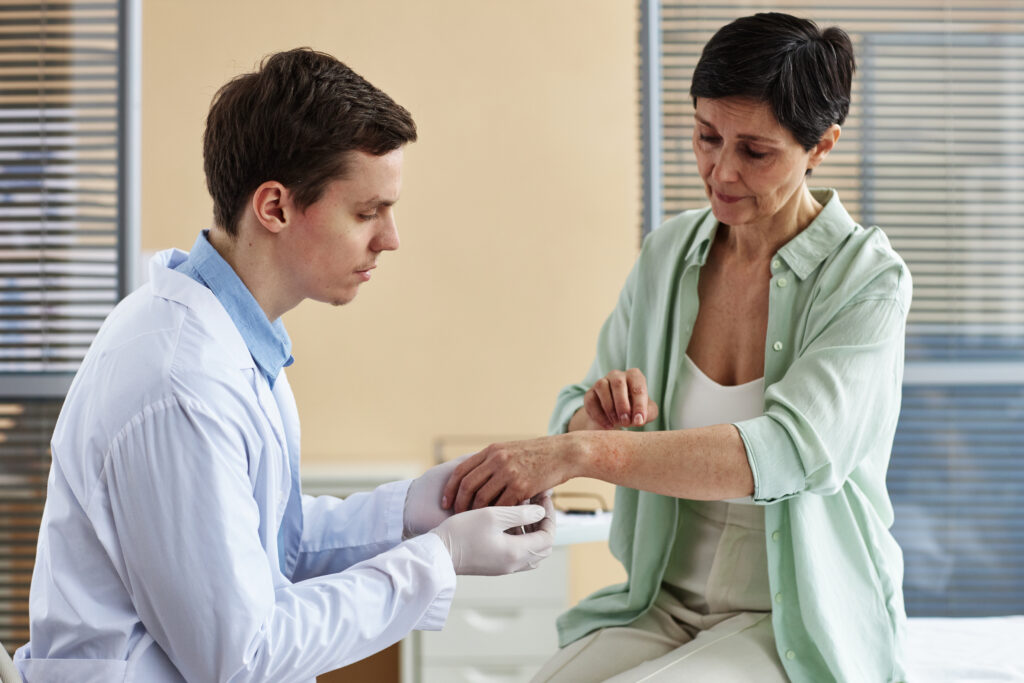Allergy testing is a critical step for individuals experiencing symptoms suggestive of allergic reactions. It’s the gateway to understanding what your body is reacting to and crafting an effective management or treatment plan. This blog post delves into the various aspects of allergy testing, covering why it’s done, the types of tests available, and what you can expect through the process.
Understanding the Need for Allergy Testing
The journey often begins when you or someone you know experiences symptoms that suggest an allergic reaction. These can range from mild, such as sneezing and itchy eyes, to severe, like difficulty breathing or anaphylaxis. Allergy testing is crucial because it helps pinpoint the exact allergens causing these reactions, enabling tailored treatment plans that can significantly improve quality of life.
Types of Allergy Tests
There are several methods healthcare providers use to determine what you’re allergic to, each with its own advantages and considerations.
Skin Prick Tests (SPT): This is the most common allergy test. It involves placing a drop of a suspected allergen on your skin, usually on the forearm or back, and then lightly pricking the area so the allergen enters the skin. If you’re allergic, a raised, red bump (similar to a mosquito bite) will appear, typically within 20 minutes.
Intradermal Tests: Similar to the SPT but involves injecting a small amount of the allergen just under the skin’s surface. This test is more sensitive and often used for detecting allergies to environmental allergens or insect venoms.
Blood Tests (Specific IgE Tests): If skin tests aren’t an option, blood tests can measure the amount of IgE antibodies your body makes in response to specific allergens. This method is less affected by medications that might interfere with skin testing and is useful for individuals with skin conditions or those at risk of severe allergic reactions.
Patch Tests: Used primarily to diagnose contact dermatitis, patch tests involve applying patches with allergens to your back. These patches stay in place for 48 hours before being assessed for reactions.
Preparing for Allergy Testing
Preparation depends on the type of test. For skin tests, you may need to stop taking certain medications, like antihistamines, that can interfere with the results. Your healthcare provider will give you specific instructions based on your medical history and the medications you’re currently taking.
What to Expect During and After the Test
Allergy tests are generally quick and cause minimal discomfort. Skin prick and intradermal tests might cause brief, mild irritation or discomfort. After the test, you’ll need to wait in the doctor’s office for about 15 to 30 minutes to ensure you don’t have a severe reaction, although this is rare.
Results from skin tests are typically ready within 20-30 minutes, allowing for immediate discussion of findings. Blood test results might take longer, usually a few days to a week.
Interpreting the Results
Positive results indicate that you are allergic to a particular substance, while negative results suggest you likely aren’t. However, test results are not infallible. Your healthcare provider will interpret the results in the context of your medical history and symptoms.
Recent Posts
- Proper Airflow Management and Allergies
- How Allergies Can Control Your Life—And How Allergy123 Can Help You Reclaim I
- Climate Change is Making Allergies Worse
- How Allergy Testing and Treatment Can Improve Your Daily Life and Productivity
- How Allergy Testing and Treatment Can Help Your Kids in School and Sports
The insights gained from allergy testing can be life-changing, guiding dietary modifications, environmental changes, or treatments like immunotherapy. It’s a vital step towards managing allergies effectively and improving your overall quality of life.
Allergy testing marks a pivotal moment in understanding and managing allergies, serving as a cornerstone for developing a comprehensive and personalized treatment strategy. The knowledge gained from this testing empowers individuals with allergies to make informed decisions about their health, lifestyle, and environment. It opens the door to targeted treatments such as immunotherapy, which can desensitize the body to allergens over time, and pharmacotherapy, which can provide symptom relief. Furthermore, understanding one’s triggers enables proactive management strategies, including dietary adjustments and environmental modifications, to minimize exposure to allergens and enhance quality of life.



